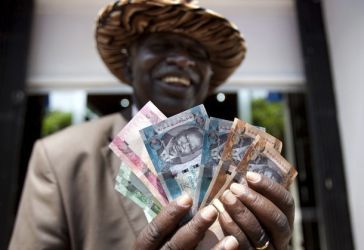S. Sudan blames current economic distress on regime change
February 13, 2016 (JUBA) – South Sudanese officials have attributed the its deteriorating economic situation to western powers allegedly seeking to topple the government in order to bring in people who would take orders and directives to implement their agenda.

“They (unnamed western countries) are determined to ensure they achieve their regime change agenda. They have tried the use of violence as a way to change the government but this did not work. So they decided to adopt another strategy this time to achieve their objective”, Mawien exclusively told Sudan Tribune on Saturday.
“You know there have been threats of targeted and general sanctions which are being unilaterally advocated to be imposed against the country and its leadership. This is still part of the regime agenda”, he added.
The senior presidential adviser described regime change agenda as being a foreign approach to removing a government which does not want to be controlled by external forces by using external force or underhand maneuvering within the targeted country.
The Finance Minister, David Athorbei also blamed the country’s financial woes on what he termed as plans by foreign nations wanting to see the fall of the current government.
“If we run out of dollars then we will have to depend on the South Sudanese pound,” said Athorbei.
“There is no way to close fiscal deficit. There are two days to do it, either we take loans from domestic or international financial institutions, which we are not getting or depend on our local currency”, he added.
(ST)
